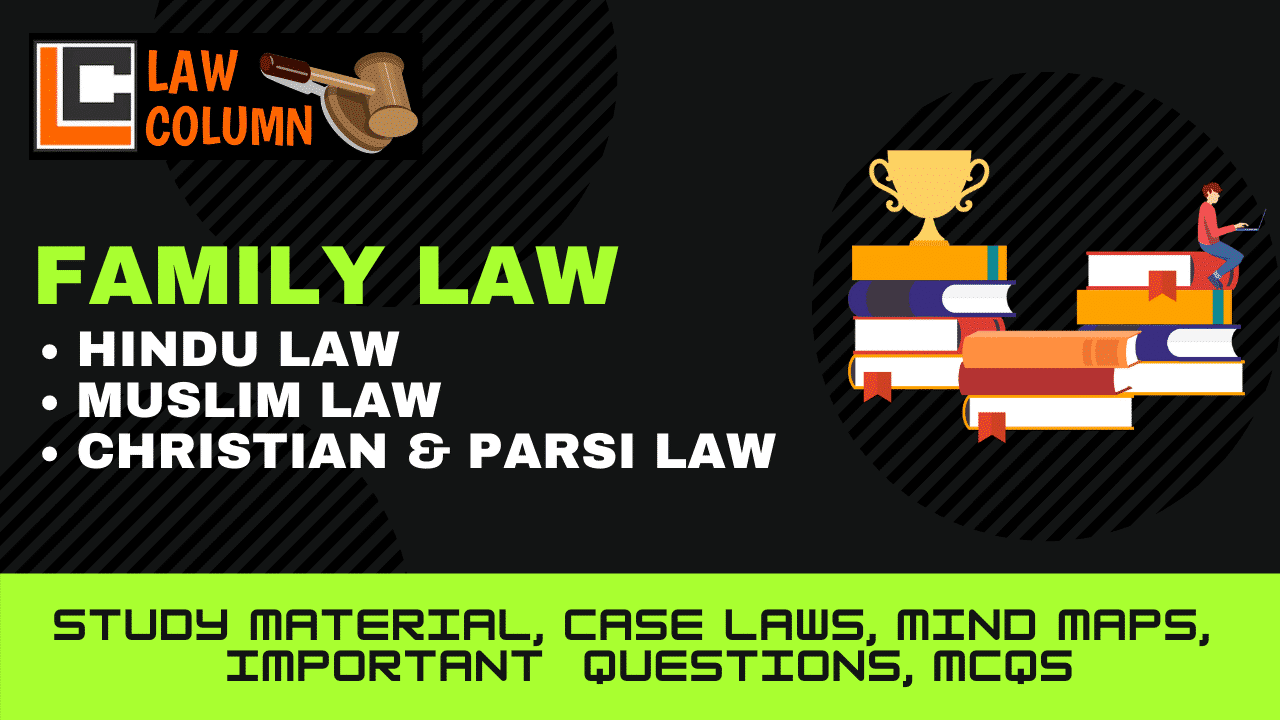Disqualification under Muslim law of inheritance
Disqualification Under Muslim law of inheritance, just as in any other system of law, there are certain person who are, though heirs, not entitled to as share in the inheritance on account of heir disqualification.
- Under the Hanafi law an heir who has caused the death of the deceased intentionally, inadvertently, by accident, mistake, or negligence is excluded from inheritance.
- Under the Shia law the heir is disqualified only if the death is caused intentionally.
However, a widow who has children or grandchildren is entitled to one-eighth of the deceased husband’s property. If a Muslim man marries during an illness and subsequently dies of that medical condition without brief recovery or consummating the marriage, his widow has no right of inheritance.
Non Muslim
Under the Islamic law, a non Muslim was not entitled to inherit the property from a Muslim. In India this is not so a Muslim who has renounced Islam or had in any manner so as to be a Muslim will nonetheless be entitled to inheritance in the property of his deceased Muslim relation whose heir be is. But his non Muslim descendant will not be entitled to inherit the property of the deceased Muslim. The inheritance to the property of a convert to islam is governed by the muslim law(“Miler Sen Singh V/s Moqbul Hassan Khaan AIR 1930”)
Murderer
Under the hanfi law an heir who has caused the death of the deceased intentionally, in advertently by accident, mistake or negligence is excluded from inheritance under the Shia law, the heir is disqualified only if the death is caused intentionally. This is the principle of general policy, and is followed in most systems of law that an heir who has caused the murder of the deceased is disqualified from inheritance.
Child in the womb
Under Muslim law, a child in a womb of her mother is entitled to inherit, if it is born alive. A stillborn child is treated as having been born alive if it’s mother was treated with violence as a consequence of which she gave birth to it. The law among the Shias and Sunnis in this regard is the same.
Illegitimate children
Under the Hanfi law, an illegitimate child is not entitled to inherit from its father but it is allowed to inherit from its mother the mother can also inherit the property of her illegitimate children. The illegitimate child inherits not merely the property of its mother but also the property of all other relations with whom it is related through the mother. Thus when Hanfi female dies leaving behind her husband and an illegitimate son of her sister, the husband will take 1/2 as a sharer and the residue it will go to the sister son. Since the illegitimate child cannot inherit from its father, it cannot inherit from any other relation through the father under the Ithana Ansari school and illegitimate child is related as nullius filius and cannot inherit the property of any of its parents or any other person through its parents.
Daughters
Daughters as a rule are entitled to inheritance. But sometimes they are excluded from inheritance by custom or statues. In such a case, the shares of the other heirs are calculated as if daughter did not exist.
Among the gujars of Punjab and Jammu and Kashmir, daughters are excluded from inheritance by custom. They succeed to the property only in the defaults of agnates (“ASCII DAR V/s. Faze, AIR1960”). Under the Bombay Watan act,1886, if a Muslim watandar died leaving a widow, a daughter and a paternal uncle, then the daughter had no right to a share in watan land. In such a case, the widow and uncle took the land as if the daughter did not exist.
Insanity and Unchastity
Insanity and Unchastity are not disqualification under the Muslim law, and therefore, an insane or unchaste heir is entitled to inherit.
Eldest son
Under the Ithana Ansari law, the eldest son who is of sound mind is exclusively entitled to wearing apparel of his father, his is copy of Koran, his sword, and his ring, provided the father had left some other property beside these.
Childless widow
Under the Ithana Ansari law, a childless widow is not entitled to a share in her husband’s land, both agricultural as well as urban. However she is entitled to her share in the value of trees and buildings standing on the land as well as share in the movable property of her husband. Immovable property includes the debts due to her husband(AIR1935 oudh 78”). It has been held that a childless widow, in the absence of other heir is entitled to inherit not merely her share but also rest of the property including the land of her husband by the application of doctrine of return
Step parents
Since step parents are not related to their step childrens, they are not entitled to inherit the property of their step children.
Absent heir
If an heir is absent at the time of the distribution of assets, then his share as to be kept apart for him until such time as he is presumed to be dead(“section 107 evidence act”).
Succession to the property to enmuch
In Illyas V/s. Badshah AIR 1990 Gau. 70, the question before the court was weather enmuch who are Muslim by religion are governed by Muslim law or customary law. The court held that they were governed by the customary law(“AIR 1990 Gau. 70”).
Author: vivek khandelwal,
Amity University,Rajasthan/ 2nd Year, BBA.LL.B(Hons.)

